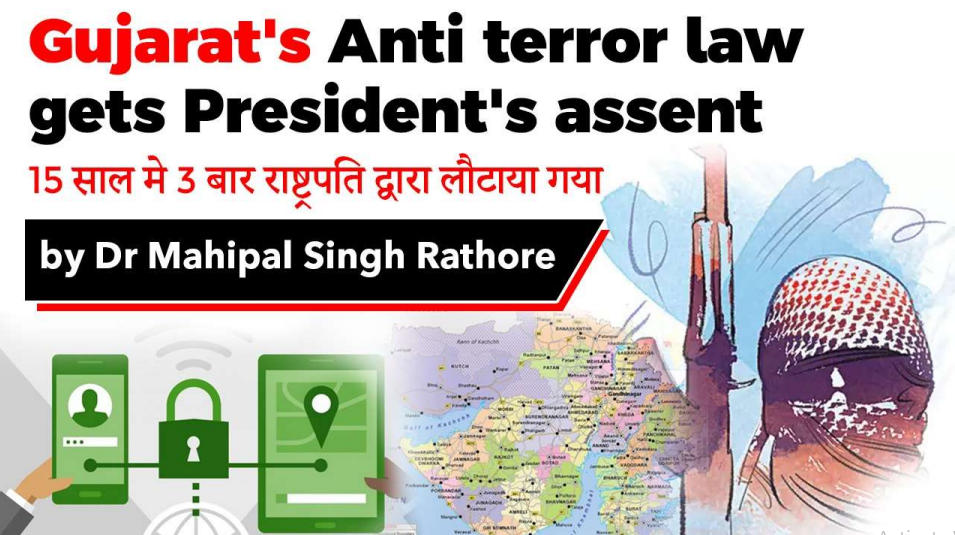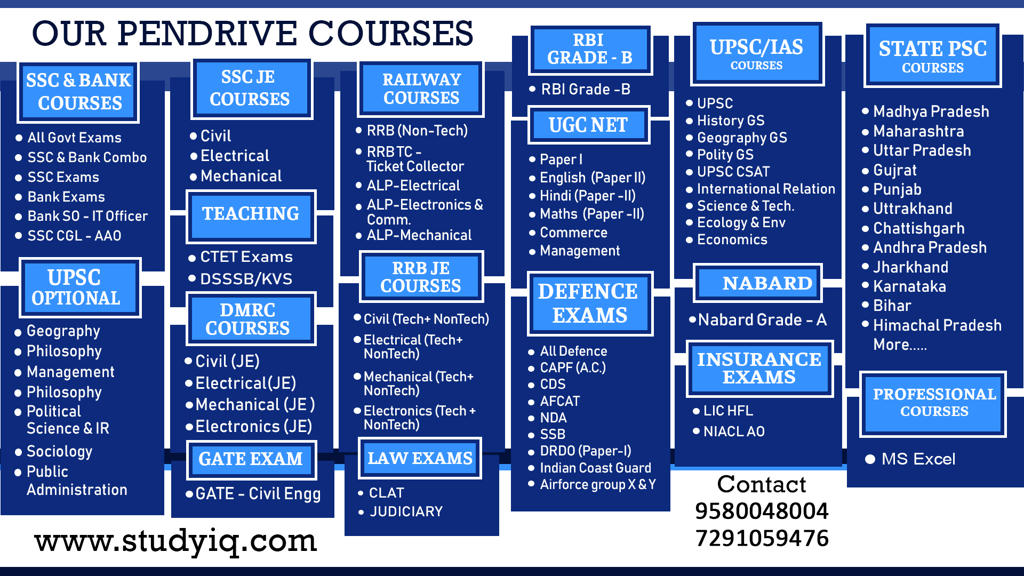Table of Contents
The News
- The Gujarat Control of Terrorism and Organised Crime Bill (GCTOC) has now become law after it received President Ram Nath Kovind’s assent.
- It has been approved 16 years after its first version was passed by the Gujarat Assembly(in 2003).
- One of the key features of the new Act includes the consideration of intercepted telephonic conversations as legitimate evidence.
A chequered past
- The bill, earlier named as the Gujarat Control of Organised Crime (GUJCOC) Bill was first introduced in the Gujarat Assembly in 2003 by then Chief Minister Narendra Modi.
- 2004 – The Bill was returned to the state assembly by President Kalam who objected to provisions relating to the interception of communication.
- 2008 – President Patil returned it over provisions on confessions made to a police officer.
- After this, when some changes were made to the Bill and it became GCTOC in 2015,
- It was passed again by the state assembly.
- 2015 – President Mukherjee did not give his assent.
- Thus this Bill was returned by three successive Presidents: A P J Abdul Kalam, Pratibha Patil and Pranab Mukherjee.
When President’s assent is needed for a state law?
- In most terror cases, investigations are carried out under both central and state laws, which can sometimes come into conflict.
- This is where Presidential assent guided by Article 254(2) of the Constitution comes into play.
- According to the provisions of this Article, in case a state law clashes with a law made by Parliament, the law made by the legislature of the state prevails, provided it has received the President’s assent.
Important features of the GCTOC Act 2019
- It defines a ‘terrorist act’, as an act committed with the intention to disturb law and order or threaten the unity, integrity, and security of the state.
- It also mentions organized crime which are criminal activities run for a substantial profit.
- It includes economic offences namely, Ponzi schemes, multilevel marketing schemes, and organized betting.
- It also includes extortion, land grabbing, contract killings, cybercrimes, and human trafficking.
- The investigating agencies can intercept telephonic conversations and submit them as legitimate evidence in court.
- However, the approval for interceptions of telephonic conversations will be cleared at the level of additional chief secretary.
- The confessions made before a police officer will also be considered as evidence.
- However, the confessions made to an officer of the rank of Superintendent of Police (SP) or above would only be admissible in court.
- It provides 180 days’ time for authorities to file a charge sheet instead of the usual 90 days and also proposes stricter conditions for bail.
- It also provides for the creation of a special court as well as the appointment of special public prosecutors.
The Criticism
- Political parties, activists, and members of civil society have all criticised previous drafts of the Gujarat bill on several grounds:
- Removal of procedural safeguards
- Dilution of the rights available to an accused,
- Potential for misuse by the government,
- Legality of such a law being enacted by a state government.
Rights Issues
- The consideration of intercepted telephonic conversations as legitimate evidence is violative of the Right to Privacy (Article 21).
- The consideration of confession made before police officers as evidence is violative of the fundamental rights of an accused (Article 20).
- Article 20(3) – no person accused of any offence shall be compelled to be a witness against himself.
- The extension of time for filing the charge sheet has been increased up to 180 days from for 90 days – under detention for a longer period of time.
- Note – These provisions are on the lines of the Centre’s Prevention of Terrorist Activities Act (POTA). But arbitrary use of such provisions led to the repulsion of POTA in 2004.
Is GCTOC really required?
- With substantive amendments made to the Unlawful Activities (Prevention) Act in 2012 and 2019, the country does have an effective law to curb modern-day terrorism.
- The Gujarat law is modelled on the Maharashtra Control of Organised Crime Act (MCOCA) which itself has not achieved any remarkable success in curbing organised crime.
Possible advantages of the Bill
- Gujarat shares a border with Pakistan, and hence, such legislation is required for better safety and security, especially in a coastal and border state.
- It will give sufficient power to police officials and enhance the security of the state.
- It will also help control cybercrime and narco-terrorism fuelled by terrorist outfits from across the border.
Latest Burning Issues | Free PDF






















 WhatsApp
WhatsApp